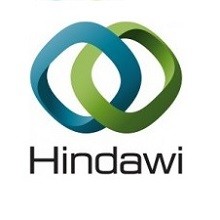
تأثیرگذاری الکل بر متابولیسم کلسترول و تحریک بیماری کبد چرب
1- Introduction
2- Materials and Methods
3- Results
4- Discussion
References
Introduction
Fatty liver disease (FLD), including mainly alcoholic fatty liver disease (AFLD) and nonalcoholic fatty liver disease (NFALD), is a major cause of morbidity and mortality worldwide. Morbidity of NAFLD is 15% in China and 12.9∼46% worldwide, while AFLD is 4.5% in China [1]. Te spectrum of FLD encompasses steatosis, steatohepatitis, progressive fbrosis, and hepatocellular carcinoma, and it is infuenced by numerous factors including alcohol abuse, high-fat diet, and a high-cholesterol diet. Meanwhile, binge or chronic alcohol consumption and high-fat-cholesterol diet are popular trends in residential table manners. A diet containing high cholesterol may induce FLD. Reports by our group [2] and others [3] suggest that dietary cholesterol is a critical factor in the development of experimental steatohepatitis in animal models. Animal experiments also have revealed that infammation and steatosis in a NAFLD model rat treated with Ezetimibe, inhibiting exogenous cholesterol absorption, showed notable improvements [4, 5]. Epidemiological studies have also reported that dietary cholesterol consumption is independently associated with the development of FLD [6]. High-cholesterol diets induce FLD by impairing hepatocyte mitochondrial functions and causing oxidative stress, increasing lipid synthesis and lipidosis, inducing hepatic steatosis, steatohepatitis, etc. [2, 3]. Research has revealed that a high-fat diet without cholesterol induces a slight elevation of liver enzymes, such as aspartate transaminase (AST) and alanine transaminase (ALT), and no infammatory infltrate, whereas the high-fat diet, with cholesterol or cholesterol and alcohol, can cause more serious liver injury [3, 7]. In addition, a high-fat diet with alcohol can induce more lipid droplets compared with that without alcohol [8].
